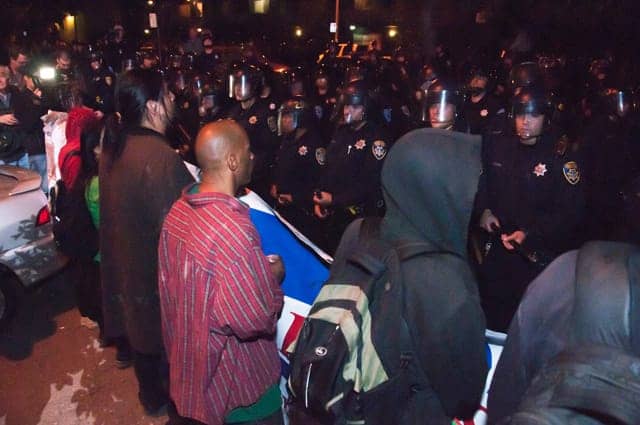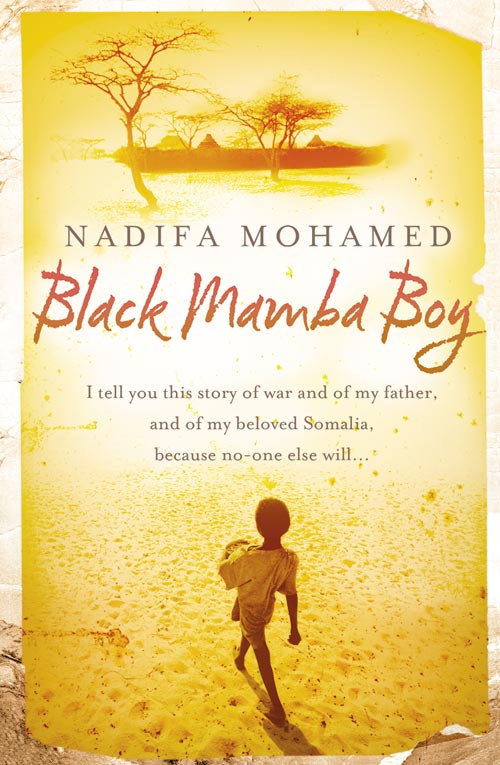Cholera death toll rises in hurricane-hit Haiti
Leogane bore the brunt of Hurricane Tomas rainfall
The death toll from the current cholera epidemic in Haiti has exceeded 500, the country's health ministry has said.
Fifty-nine people had died up until and including Thursday, and 617 others had been infected, bringing the total affected to 7,359, the ministry added.
The news came as the local authorities and relief agencies attempted to get clean drinking water to those areas worse affected by Hurricane Tomas.
The storm caused flooding and left eight people dead in western Haiti.
The charity, Save the Children, said that in Leogane, the streets had been turned into "rivers" and some 35,000 people had been affected.
Analysis
The UN estimates 15,000 people in Leogane have been affected by the floods.
Amercie lost her home when January's earthquake flattened this small town west of Port Au Prince. And now her tent has been flooded because the river burst its banks.
The mother-of-three is sitting opposite Leogane's cemetery, where family tombs lie on their sides, cracked in two by the quake, now surrounded by water.
Amercie is worried the combination of dead bodies and stagnant water from the flooding could spread the cholera outbreak to here, where so far no cases have been reported.
Next to Amercie, Jean Pierre, a farmer who just planted what he hoped would be a new crop of banana trees and yams, says the flood has washed away his plantation.
His childhood home collapsed in January's quake; the house he built afterwards has just flooded. No-one is helping, he says angrily.
As we leave, the sun has come out and the flood waters are receding. The market is open, and the merchants are selling fruit and vegetables, trying to make a living as best they can.
The BBC's Laura Trevelyan in the town said the water reached her knees, and that people were afraid of the risk of disease.
There was also flooding in Les Cayes, Jacmel and Gonaives, while many mountain towns have been cut off by flooded roads and landslides.
'Additional risk'There was widespread relief on Friday after Hurricane Tomas passed without destroying the tented camps in and around the capital, Port-au-Prince, housing about 1.3 million survivors of January's earthquake.
However, attention soon turned to preventing the spread of cholera, which is caused by bacteria transmitted through contaminated water or food, in the unsanitary conditions.
Cholera causes diarrhoea and vomiting, leading to severe dehydration, but can kill quickly. It is treated easily through rehydration and antibiotics.
A spokesman for the Pan-American Health Organisation, Christian Lindmeier, told the Reuters news agency: "Cholera is a water-borne disease and so additional water means additional risk."
"We do expect the infection rate to jump up due to the flooding and to the bad sanitation conditions in many areas," he said.
In the town of Saint Marc, in the northern region where the outbreak began three weeks ago, a Cuban doctor in charge of the local hospital said there had been more cases of cholera since the hurricane.
Cholera
- Intestinal infection caused by bacteria transmitted through contaminated water or food
- Source of contamination usually faeces of infected people
- Causes diarrhoea, vomiting, severe dehydration, and can kill quickly
- Easily treated with antibiotics; not usually fatal
"The situation here - after the storm - has worsened," Dr Buenaventura Sanchez told the Associated Press.
"We are seeing higher numbers [of cases] than in the days before, and we are also seeing cases of cholera with typhoid fever at the same time."
Like cholera, typhoid is caught by consuming contaminated food or drink that has been handled by an infected person, or if contaminated sewage gets into water used for drinking or washing food. It can also be fatal if not treated.
Gary Shaye, the country director of Save the Children, said thousands of children in Leogane were now at increased risk of diarrhoeal diseases.
On Friday, Haiti's government and the United Nations appealed to donors for nearly $19m to cover urgent humanitarian needs.
Emiliano Mariscal
Argentine doctor, Graduate of the Latin American School of Medicine (Cuba) and member of the Cuban medical brigade in Haiti
The original of this item was published on the website of ALBA-TCP. This is a Google translation from the Spanish revised by Norman Girvan, www.normangirvan.info
4 November 2010
To my friends and family
These lines are meant to provide information on the health situation in Haiti, as a result of the concern of many friends who have written asking about conditions here. The first thing I can say is that we have a disease--cholera-- which has not been reported in this country for over 100 years. Secondly, that it is one of the most dreaded diseases here, given the ideal conditions that exist for its persistence and spread.Briefly, my first experience of the disease was this: two days before its presence in Haiti was confirmed; we accompanied an epidemiologist, a microbiologist and an entomologist to Mirebalais, a community in the Centre Department; where the Cuban medical brigade stationed at a hospital had reported an outbreak of diarrhea of such unusual severity that it had already killed three people.During the tour of the community we frequently had occasion to recall the work of Dr. John Snow, the forerunner of modern epidemiology, because when we visited the locations from which the deceased originated they all had a common element: proximity to the River.People have no piped water supply, so they obtain water from the river; whether for drinking, washing utensils, personal hygiene, etc. Another common element is the absence of latrines, so it is usual for them to relieve themselves outdoors.We also observed overcrowding, extremely poor housing conditions, small garbage dumps scattered throughout, malnutrition, a low educational level, helplessness and resignation. Patients admitted to hospital had watery diarrhea, whitish, accompanied by profuse vomiting, the most severe cases arrived with dehydration with three deaths.Water samples were taken, feces, and vomit by the authorities of the Ministry of Health of Haiti. Our conclusion: the source of infection is contaminated water; by reason of clinical characteristics indicating an extremely aggressive bacteria that is spread by water, the existence of environmental conditions for its persistence and spread, an incubation period of around 24 hours, and the fact that in the space of a few hours it can result in complications, which, if untreated, can cause premature death.
Cholera having been absent for one hundred years, we could not be sure that this was what we were dealing with until there was laboratory confirmation. The report was turned over to Haitian authorities and the next day, the outbreak occurred in Saint Marc Soon after came the confirmation that this is indeed a Vibrio cholerae.16 days have elapsed from the beginning of the epidemic to date Haitian authorities have reported 330 deaths and approximately 4600 inpatients.There are several international institutions such as PAHO and theCDC, who are advising the Haitian Ministry of Health, but the lead role, although you don’t hear about it in the mass media, is played by Cuba in close coordination with the health institution in Haiti[1]. The reality is that the action of the Cuban Medical Brigade has contained the epidemic and delayed its spread of the epidemic to Port au Prince (which is the most feared, as there are 1 500 000 people living in settlements there in extremely precarious conditions). The town of Arcahaie (part of the Department West) leads directly to Artibonite (and especially to Saint Marc), where our brigade provides medical care in two institutions (as part of the strategy for reconstruction and strengthening of the health care system developed together with Ministry of Health of Haiti) which have been turned into Cholera Care Centers, Up to October 30 the two institutions had treated 1182 patients, confirming at the same time, the presence of transmission in the sub-communities of Arcahaie, finding in them the conditions described in the first focus control area in Mirebalais.You don’t need to be a health specialist to work out that if the 1,182 patients had not been referred to these centers, they would have sought assistance in Port au Prince; and that's exactly the way the epidemic spreads (described extensively in the literature), when sick people come in search of health institutions and others who are not yet sick, but are in the incubation period, move away from the place for fear of contracting the disease. As a result many people would have moved to Port au Prince where there are no conditions to contain the influx of sick people.The fundamental tasks are to carry out health education and to provide safe sources of water supply for the population. Both elements are difficult to achieve, the first because it is difficult to change long ingrained habits in the population; the second, because although there are resources (grants), establishing the organizational capacities needed to bring it about is a complex matter.The work is going forward. The Cuban Medical Brigade is ready to continue contributing to the fight against this terrible epidemic together with the Haitian authorities. Their presence in the community through health education activities linked with community leaders and Cholera care centres are high expressions of the principles of solidarity and internationalism.Fifty-one young graduates of the Latin American School of Medicine are now in the forefront of this hard battle, working arm in arm as one with their Cuban brothers and teachers. The others continue working in positions throughout the country, many of them ready to go to the front line as necessary.The prospect is that the disease will remain in the country for several years, with outbreaks happening as water sources are polluted.A hurricane is now approaching, which is forecast to reach Haiti today. No doubt this will aggravate the situation, providing conditions for the further spread of the disease to places where it had not reached. There are also areas of high flood risk.Cuba has been here for 12 years; since the earthquake the commitment is to rebuild and strengthen the health care system, Cuba will be here during the cholera epidemic and in the wake of the Hurricane. Just ask any citizen of this country about the Cuban doctors and you will see their faces blossom.Proud to be part of another page of the many pages of Cuban internationalism; proud to be a member of the Cuban Medical Brigade; proud to be a child of the Americas, committed above all to my homeland that is Latin America and to my compatriots who are the children of this soil.
The Spanish original of this item is at the ALBA-TCP website,http://www.alianzabolivariana.org/modules.php?name=News&file=article&sid=7087.
[1] Translator’s note: it is not clear if this refers to the Haitian Ministry of Health. The Spanish reads “la institución sanitaria de Haiti”
****************************************************
Forwarded by Ezili's Haitian Lawyers Leadership Network
****************************************************
BACKGROUND INFO
Video: Haiti quake survivors face Hurricane Tomas aftermath
HLLN US grassroots mobilizing in Black liberation theologychurches Mission With Haiti - Two Churches One MissionAl Jazeera
Health experts say UN troops could have caused Haiti cholera outbreak, call for investigation, Associated Press, Nov 4, 2010
Listen to Ezili/HLLN's take on UN investigating the UN:
Audio: Ezili Dantò on Yves Point Du Jour Radio show on Cholera outbreak in Haiti, Washington, D.C. | Oct. 30, 2010
Audio: Nov 1, 2010 Interview on London, England radio w/ Ezili Dantò of HLLN.
Haiti's case against the UN for importing cholera epidemic
Recall that in 2009, I asked
"What will we do if they poison the Artibonite River, that fertilizes Haiti's breadbasket?". See transcript at: Haiti's Riches: Interview with Ezili Dantò on Mining in Haiti, April 29, 2009 (See also- HAITI RICHES)
A chilling video testimony of brackish Red Cross water in Haiti- How the Red Cross ill-used your donations. For another compelling testimony on Red Cross delivering filthy water to Haiti victims ever since the earthquake, view also: How did the Red Cross spend $106 Million Dollars in Haiti: (Ezili Dantò's note: Amongst some of the testimonies that's not clearly translated in this most valuable video: a woman standing next to a small child repeating "no, no, no," points to a water drum with a "Red Cross" sign on it and says that even the water they give is not treated. She explains that she drinks it because she has no money to buy good drinkable water but suffers right now from a stomach ache from drinking the Red Cross' polluted water.)
***
"The cholera outbreak need not have happened. Shows the failure of the international relief effort." ---Ezili Dantò - Haitian cholera epidemic preventable, October 27, 2010Aljazeera Video, October 27, 2010 — Haiti cholera outbreak water contamination UN soldiers Nepal batallion base Mirebalais sewage. (Watch it below.) Is Haiti's deadly cholera outbreak an imported disease? by Ezili Dantò








 Belinda: How far back did you go when researching your story in order to be as accurate as you could be about the historical aspects and details of your book?
Belinda: How far back did you go when researching your story in order to be as accurate as you could be about the historical aspects and details of your book? Photograph by Andy Hall
Photograph by Andy Hall

